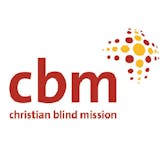Mainstreaming of Disability in Humanitarian Action: Meaningful Participation of Persons with Disabilities in Humanitarian Action
Fully booked
In this training, you will learn how to apply the IASC Guidelines on the Inclusion of Persons with Disabilities in Humanitarian Actions, focusing on the 4 (four) must-do actions. You will improve your knowledge of Organizations of Persons with Disabilities (OPDs), understand their structure, and what it means to collaborate at eye level. You will also gain knowledge on supporting participation through practical arrangements like reasonable accommodation and application of the twin-track approach. Finally, you will gain practical knowledge on implementing inclusive approaches for all individuals with different types of disabilities, including women, men, girls, and boys.
The training will follow a “blended learning” approach which includes online and in-person sessions. The training starts with a half-day online introduction and an online self-learning exercise of around 60 minutes. The two-day face-to-face workshop in Berlin, co-facilitated by Organizations of Persons with disabilities from Cameroon, will include a diverse mix of input presentations and practical case studies, group work, plenary discussions, and the option for individual advisory sessions.
You will learn
how to apply the IASC Guidelines on the Inclusion of Persons with Disabilities in Humanitarian Action with a focus on the 4 (four) Must do Actions and essentially the meaningful participation and empowerment of persons with disabilities
how to identify OPDs, how these are structured, and which advantages, challenges and responsibilities it implies to collaborate with ODPs
how to support the meaningful participation of persons with disabilities through practical arrangements such as reasonable accommodation, or through applying a twin-track approach in humanitarian interventions
how to make their interventions inclusive for all persons with different types of disabilities, including women, men, boys and girls, and also IDPs with disabilities
Target group
Project managers and technical advisors of German-based humanitarian actors and their (local) offices and partners with experience in humanitarian action programming, a good command of English, and the ability to attend all in-person sessions in Berlin.
Schedule
Online Session (Monday, 09 September 2024 via Zoom)
09:30 - Welcome & (Short) Introduction round + Logistics for the f2f training
10:00 - Building the case: Why is meaningful participation of persons with disabilities in humanitarian action a must-do?
11:15 - Comfort Break
11:30- Continuation: Building the case
12:15 - Basics for meaningful participation 1
12:45 - Quiz on rights-based language/ OPDs or video to analyze barriers and enablers
13:00 - Closure of the Workshop
CBM - Christian Blind Mission
Lecturer

CBM is an International Organization, providing inclusive humanitarian assistance in crisis. CBM’s humanitarian activities aim to equally reach and actively involve persons with disabilities, addressing specific needs while promoting and facilitating full inclusion in mainstream services. CBM works together with local partners on programs that are context-specific, from disability-inclusive preparedness to immediate life-saving needs to reconstruction. CBM is based in Germany with 22 country offices in Africa, Asia and Latin America. With over 115 years of experience, CBM is considered as one of the world’s oldest organizations working in this field.
09.9.2024 - 19.9.2024
17 hours of training
Location

This training is jointly organized by Christian Blind Mission (CBM), Handicap International / Humanity & Inclusion (HI), and the Institute for International Law of Peace and Armed Conflict (IFHV). It is part of the "Leave no one behind!" project series, funded by the German Federal Foreign Office.
